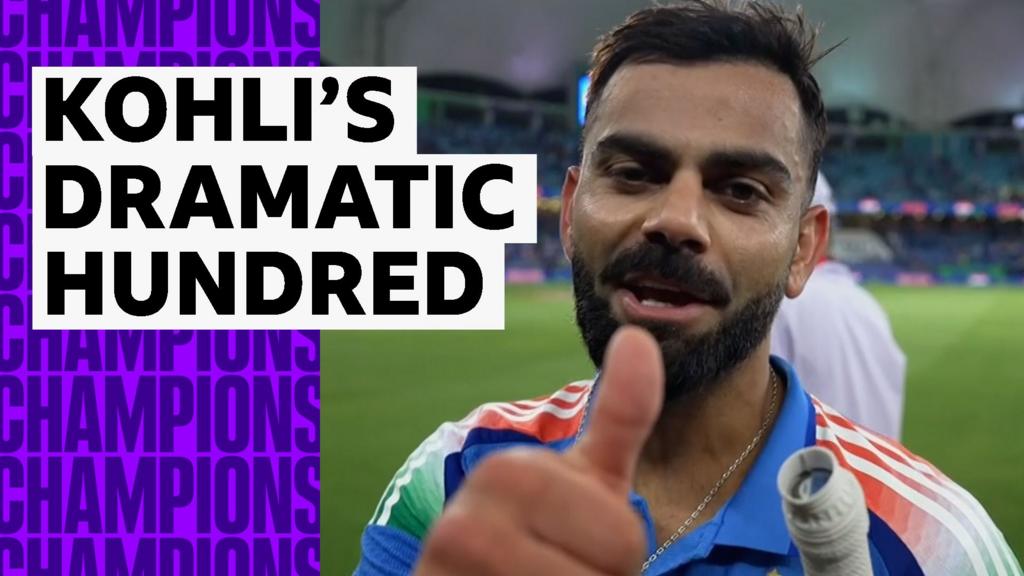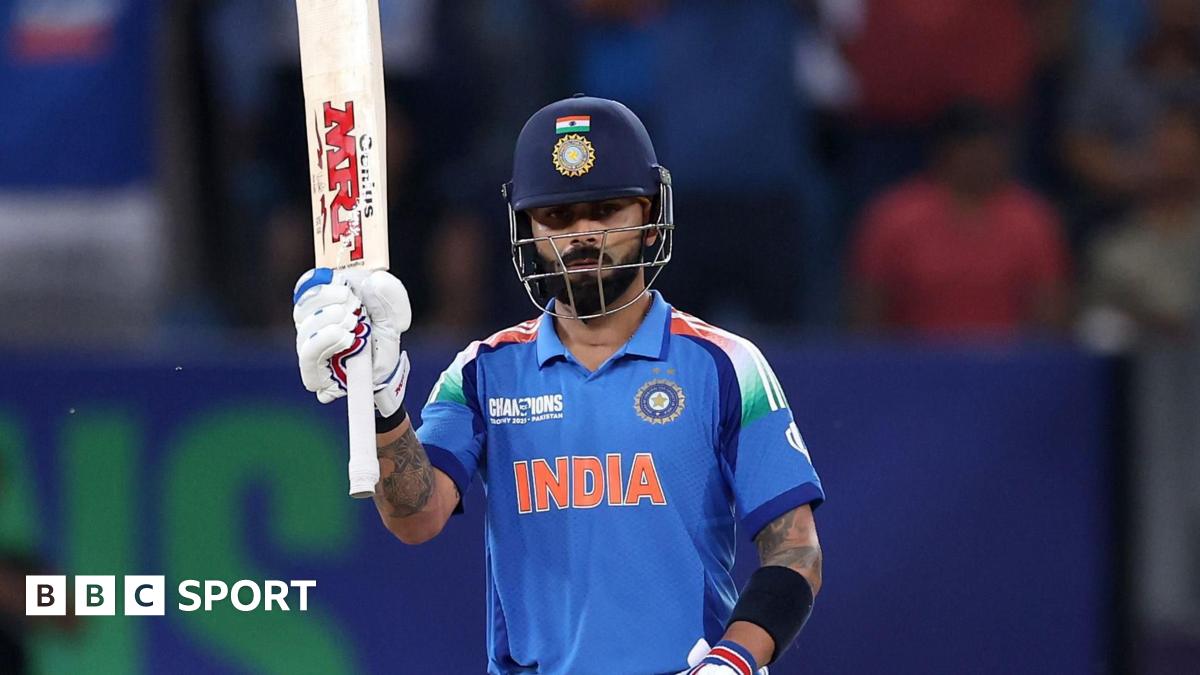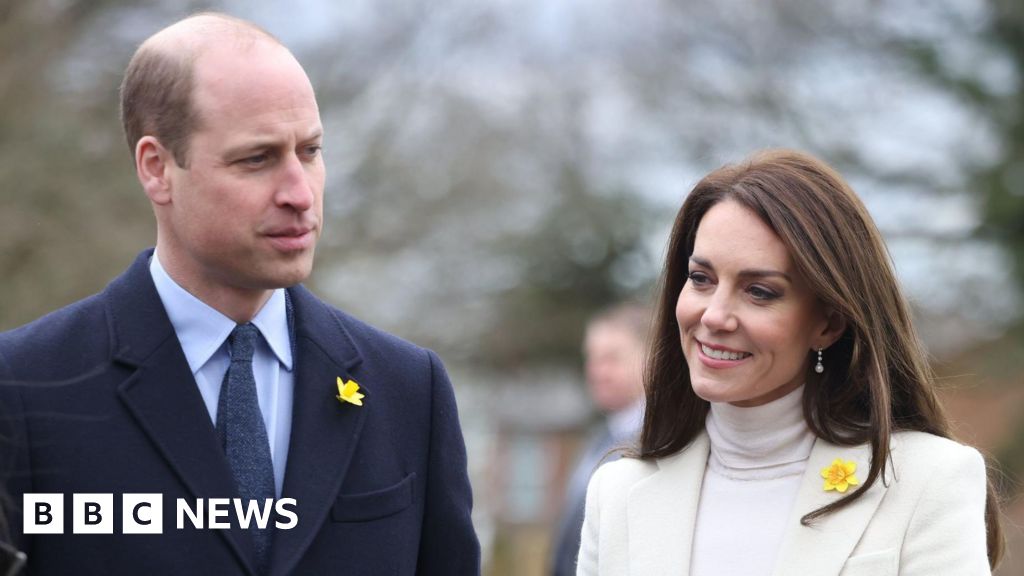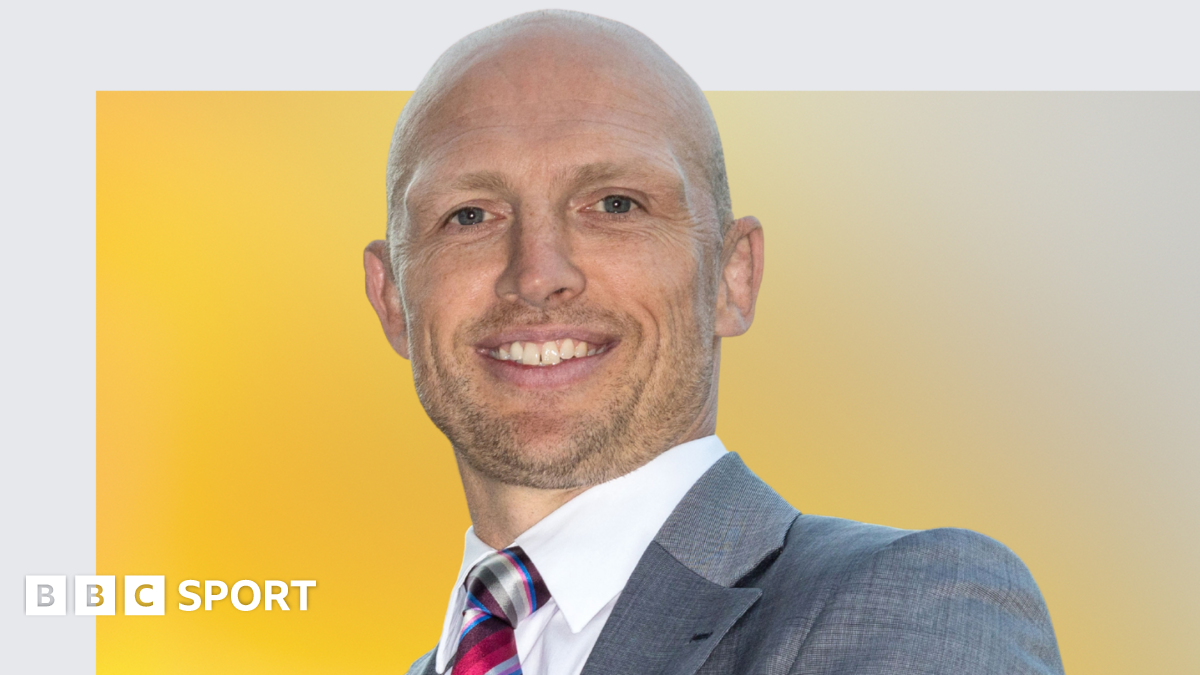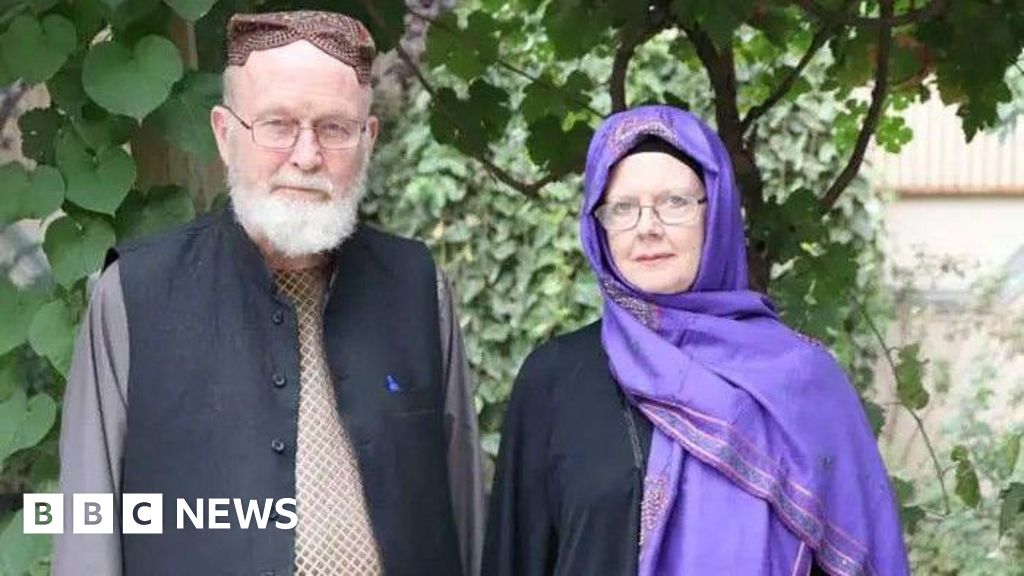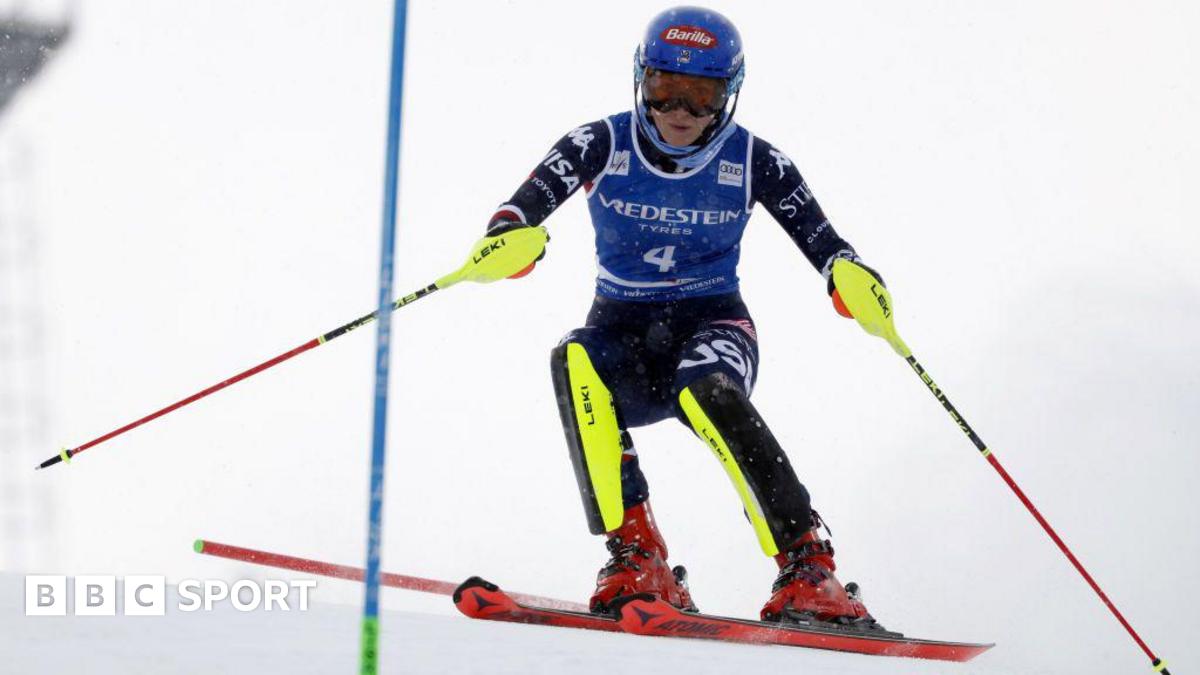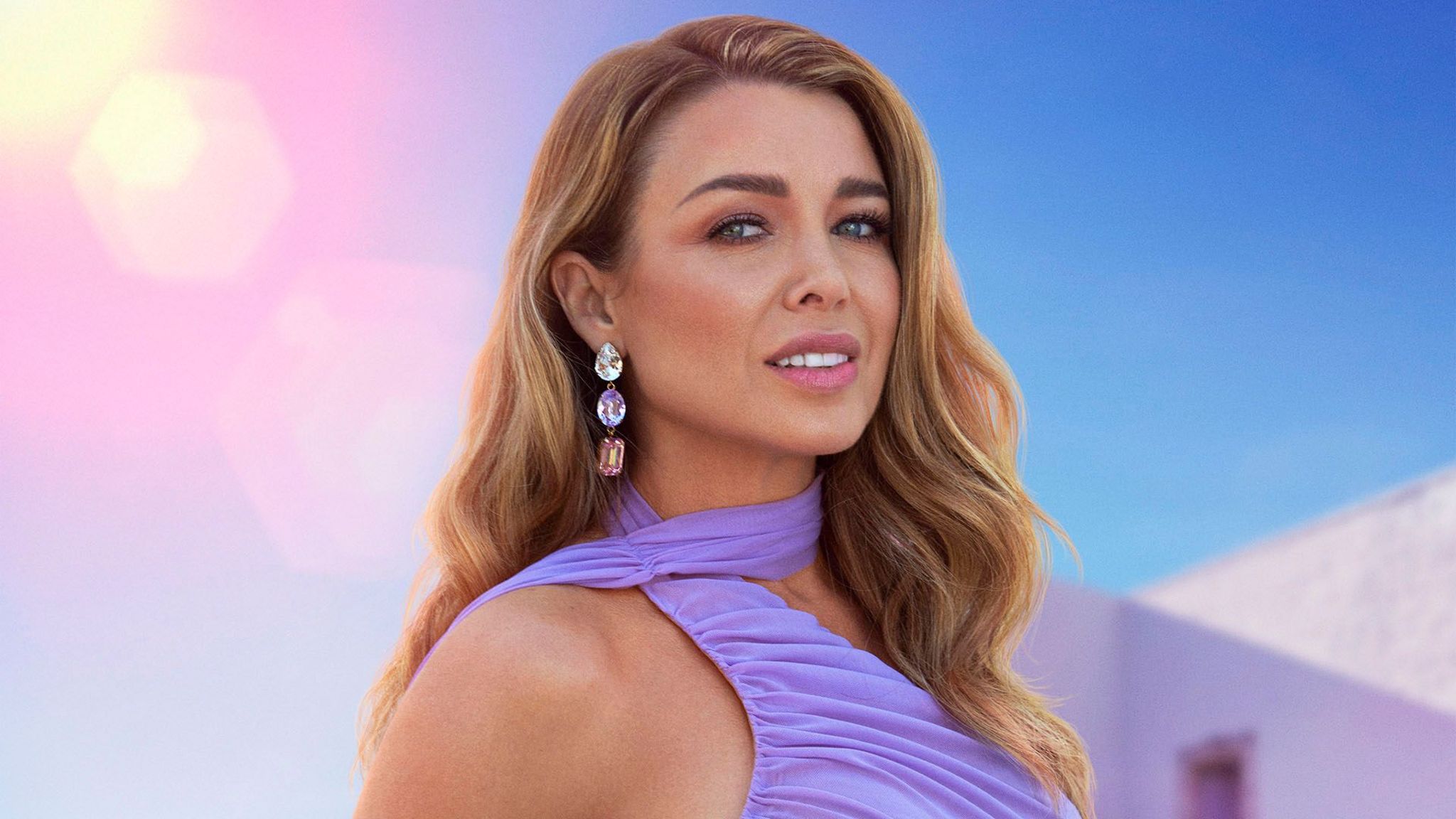 Image source, BBC/Twofour
Image source, BBC/Twofour
Dannii Minogue is the host of new all-female dating show I Kissed a Girl
Pop star. Soap star. TV talent show judge. Dannii Minogue has done many things in her nearly 40-year career.
At the age of 10, she joined the cast of Young Talent Time - a variety show that was a staple of Saturday night Australian television. And her music career began while she was a teenager, bringing highs, like multiple top 10s in the UK, and lows, like being dropped from two record labels before she turned 30.
Alongside releasing hits like I Begin to Wonder, All I Wanna Do and Who Do You Love Now?, Dannii is perhaps best known as a judge on The X Factor during the show’s peak, when 19 million viewers watched her act, Matt Cardle, best One Direction.
Now, Dannii is back on screen for I Kissed a Girl, the UK’s first dating show with an all lesbian, bisexual and queer cast. As the BBC reality show gets underway, she discusses some of her landmark “first ever” moments.
My first time on TV as a child star
“We watched Young Talent Time every week. The kids on there sang and danced and wore costumes. I was like, ‘Wouldn’t that be amazing?’ But it was a big discussion with my parents. We had to come to terms with the fact that once I’m on the show, the whole family is under the spotlight, and my parents hate being on camera.
“Back then, there was no support with tuition, no limits on working hours, no guidelines for anyone. Nowadays, child stars always have someone with them, but back then our parents weren’t always there. I’m very lucky that nothing bad happened.
“I remember when I met Lindsay Lohan, when I worked with her on The Masked Singer Australia, we just had this real moment where we looked into each other’s eyes and both understood what it was like to be famous that young.”
Image source, Getty
Image caption,Dannii Minogue launched her pop career in Britain in 1991
My first time feeling unsafe in my career – and how it still affected me decades later
When she was on her first American tour in the early 1990s, Dannii travelled to the US to work with someone she describes as “a very big record producer of the day”. After trying to persuade him the song would suit her voice better in a different key, she alleges he locked her in the recording booth.
“I was in a recording studio in Chicago, and I was locked in the studio. I was crying, and the producers said they wouldn’t let me out of this soundproof booth until I delivered what they wanted. There was no one there to protect me, anything could have happened – I knew I couldn’t deliver it how they wanted it, so things could have escalated even further.
“During COVID, coming back to Australia, I had to quarantine in a hotel. I had never experienced that level of stress and anxiety, then the penny dropped: I was scared of being locked in a room with a male guard outside the door again. I realised there was so much I hadn’t dealt with about that time.”
My first time dealing with the press going too far writing about me
“I once had a journalist call me and say they were running a story that I had HIV, which I didn’t – I was just doing some work for Terrence Higgins Trust [an HIV and sexual health charity].
“I told them I don’t have HIV, they said they had a more solid account than I did. More solid than me? Wow.
“I remember thinking, ‘I’m literally here to sing music, how did my career get to the stage of me calling my doctor saying I need to come over now, they’re going to run that I have HIV unless I take a test and prove to them that I don’t?’
“At that point, things were getting too much. I thought, ‘What do I do? Do I stay in this job? Because this is all I know how to do, or do I run away?’
“But you can’t walk away from it, you can’t un-famous yourself.”
Image source, Getty
Image caption,Dannii Minogue's chart peak was in 2003 when her single I Begin to Wonder reached number two in the UK Top 40
My first time feeling in control of my career
“When I started I was like, ‘Tell me what to sing, I should not be in control because I don’t know what I’m doing.’ But then I got to the point where I knew I needed to start evolving. By the Girl album [in 1997], I knew I had something to say, and by Neon Nights [in 2004] I wanted to make something really great, with songs where you can’t imagine anyone else singing them.
“Last year was the 20th anniversary of Neon Nights, and it was really beautiful. Time has passed, you’re not out there on that intense promo trail, and you’ve had time to take it all in. I did two events for the anniversary, and it was just so emotional to meet people and know what the music means to them.”
Image source, Getty
Image caption,Dannii says sister Kylie was the first person who suggested she becomes a talent show judge
My first time being dropped by a record label
“You know your career is in trouble by just looking at your chart positions. You’ve got to hit those marks, because pop music is expensive. It’s like any business - if the product’s not working, it’s not on the shelves anymore.
“I was 22, and I was in the wilderness. Back then, nobody ever talked about mental health, or emotions and processing. Those words were not used. No one seemed to care about how I felt about anything, they’d all moved on. What got me through was my family – I always have my sister who knew what it was like to be in this particular job.”
Image source, Getty
Image caption,Dannii Minogue joined The X Factor in 2007
My first talent show judging gig – and how I dealt with the press who thought I couldn’t do it
“Kylie said I’d be a great judge because I always had the best critiques for her show. It’s one thing to be super honest with your sister when she knows it’s coming from a good place, but to do that on camera with somebody that you don’t know, that’s a lot of responsibility.
“You know you’re walking into a big show when you do The X Factor. You go and fill your car with petrol, and all the newspapers are there, and every headline involves either myself or the show.
“At the first X Factor press junkets, journalists were saying, ‘Why are you here? How do you know that you can do this?’ And I said, ‘I don’t! I’ll give it a go, and if I’m terrible, they’ll kick me off the show.’”
Image source, BBC/Twofour
Image caption,Dannii Minogue now plays cupid to the women of I Kissed a Girl
The first thing I do with every I Kissed a Girl cast member
“Working on The X Factor unlocked my maternal instincts for my acts, and that fed into I Kissed a Girl. My big question before the show was, ‘How are the cast looked after?’ I had never had a show or a record company offer any care to me, so it’s such a game changer that it happened in this show.
“When the girls leave the show, and the cameras have stopped rolling, I have a drink with them. I turn off the overhead lights, bring a disco mirrorball with me [and] create Dannii’s den. And I see if they’re OK, ask them about their lives, tell them to enjoy what happens afterwards. It’s a nice little touch that I’m able to do.”

 9 months ago
33
9 months ago
33

